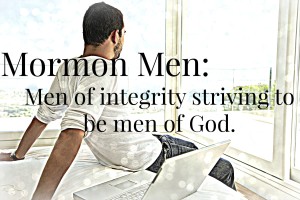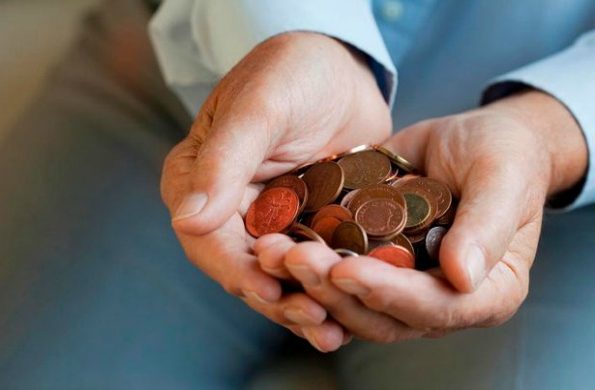To the police officer that pulled me over this morning, thank you.
We don’t normally expect to be grateful to a patrolman for pulling us over. I recognize that. But for me, today, I feel a degree of gratitude. I have been reflecting on the experience all day long. Let me share it with you, and then you can see why.
I was actually late for work, so as I careened down the residential road, my speed what higher than I expected.
 The quick U-turn and red-and-blue lights meant I was busted.
The quick U-turn and red-and-blue lights meant I was busted.
“How fast did you clock me going, officer?”
“42 miles-per-hour in a 25 mile-per-hour zone.”
I had no comeback. I guess I was just being careless in my hurry.
“That was a lot faster than I should have been going, officer. I am sorry.”
I didn’t tell him that I was late for work. I didn’t say this was a back way, a remote and deserted road. I realized I deserved what I was getting—maybe more—so I bit my tongue and awaited the outcome.
As he left to walk back to his patrol car, he said, “I will run your license, and if you haven’t been pulled over recently, I will let you off with a warning. He was sympathetic, and I was glad. As I drove the rest of the way to work between 20 and 25 miles-an-hour, I thought about how grateful I was for his mercy. It seems like a little thing, but it made my day and saved me frustration, embarrassment, hassle, and money.
I thought, “I am going to write an article about this police officer and his kind gesture,” and now I have. In my haste, I failed to secure his name, but this article is really about someone else who is much more deserving of my gratitude and yours. He has paid the price of all our foolish actions and offers us forgiveness in this world and the next if we will repent and change our ways, which will make us happier and better people anyway. And for this, we can never really repay Him.
In the Book of Mormon, King Benjamin says it this way:
23 And now, in the first place, he hath created you, and granted unto you your lives, for which ye are indebted unto him.
24 And secondly, he doth require that ye should do as he hath commanded you; for which if ye do, he doth immediately bless you; and therefore he hath paid you. And ye are still indebted unto him, and are, and will be, forever and ever; therefore, of what have ye to boast?
So what this article is really all about is being grateful. Gratitude blesses us. Grateful people are happier people. They are more fun to be around, and they appreciate the world and the many beautiful creations near and far.
All these things are important and worthwhile. Is that why we are grateful, because it benefits us? Perhaps. There are many possible reasons, but the most significant of reasons sheds light on our understanding and gratitude for all our many blessings. Consider the following:
Thinking to thank God brings us many good things, draws us closer to those we love, and makes us more like the Savior.
President Thomas S Monson shared a touching story about gratitude some years ago.
The beauty and eloquence of an expression of gratitude is reflected in a newspaper story of more than 20 years ago. It now appears across the Internet:
The District of Columbia police auctioned off about 100 unclaimed bicycles Friday. “One dollar,” said an 11-year-old boy as the bidding opened on the first bike. The bidding, however, went much higher. “One dollar,” the boy repeated hopefully each time another bike came up.
The auctioneer, who had been auctioning stolen or lost bikes for 43 years, noticed that the boy’s hopes seemed to soar higher whenever a racer-type bicycle was put up.
Then there was just one racer left. The bidding went to eight dollars. “Sold to that boy over there for nine dollars!” said the auctioneer. He took eight dollars from his own pocket and asked the boy for his dollar. The youngster turned it over in pennies, nickels, dimes, and quarters—took his bike, and started to leave. But he went only a few feet. Carefully parking his new possession, he went back, gratefully threw his arms around the auctioneer’s neck, and cried.
The Church website provides the following description of fast offerings:
1. Fast Sunday is on the first Sunday of each month. It is a special day to humble ourselves before the Lord by fasting, praying, and attending fast and testimony meeting.
2. On fast Sunday, members of the Church do not eat or drink for two meals. Children may be encouraged to fast when they are old enough.
3. Members donate the money they would have spent on food for the two meals to help the needy. This money is called a fast offering.
4. Members can give fast offerings to one of the bishopric or branch presidency members. The bishop or branch president uses the money to help those in need in his ward or branch.
5. Fast offerings may be used to help feed the hungry.
6. Fast offerings might be used to care for the sick.
7. In each way a fast offering is used, it helps take care of Heavenly Father’s children.

To read more articles by Walter Penning, click here.
Is it possible that expressing our gratitude through fast offerings is as much for us as it is for the needy? I think so. We can be grateful to a kind and gracious Heavenly Father for allowing us to participate.
I think you can see why.
About Walter Penning
In 1989, Walter Penning formed a consultancy based in Salt Lake City and empowered his clients by streamlining processes and building a loyal, lifetime customer base with great customer service. His true passion is found in his family. He says the best decision he ever made was to marry his sweetheart and have children. The wonderful family she has given him and her constant love, support, and patience amid life's challenges is his panacea.
Twitter •






